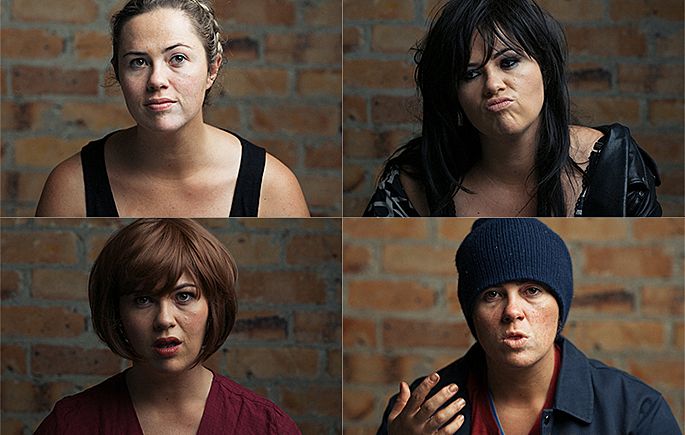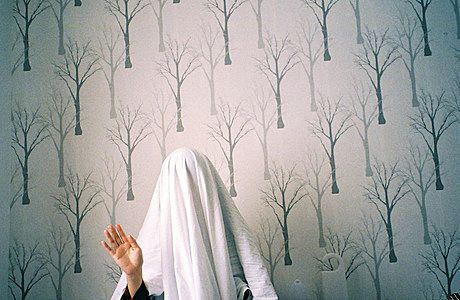We All Have A Story: A Review of Weave
A veritable tapestry of New Zealand stories, Madeleine de Young finds a relevance and urgency within Weave.
A veritable tapestry of New Zealand stories, Madeleine de Young finds a relevance and urgency within Kate McGill's Weave.
I can’t remember when the prospect of an election year turned from excitement to dread. It’s easy to say that it was 2016 - the year of Brexit and Trump when impossibilities became reality. But I suspect for me, the seed was sown in 2005 - the year of Don Brash. Iwi vs Kiwi.
As a teenager of Māori and Pākehā descent, with fair skin, growing up in Auckland I had never encountered such a stark politicisation of my own personal identity. The discomfort of this was reduced in the fact that Brash didn’t win. Nevertheless, for me it flicked a switch, an awareness that during election time my own cultural identity - as well as basically anyone who wasn’t pākehā would be up for political debate. This tends to begin around Waitangi Day - the media frothing with stories of Māori vs New Zealand - stories that divide us as concepts rather than as people.
This election year, it feels especially relevant to be pessimistic of the world around us. Despite the prospect of change (or not) in the horizon, the divisions between people on social, cultural, and economic grounds feels to be growing. Weave, written and performed by Kate McGill and directed by Alice Canton sits within Aotearoa’s current social and political state and offers a modicum of relief - simply by telling our own stories.
Over the past few years, McGill has travelled around Aotearoa collecting stories - asking questions of her subjects like ‘what are New Zealander’s like?’ Of those interviewed, the stories of 20 subjects have been crafted into Weave as a piece of verbatim theatre.Verbatim theatre can be described as documentary theatre - where individuals are interviewed and then their words, behaviours, mannerisms are transposed to the stage as is. One of the most well known iterations of verbatim is The Laramie Project by Tectonic Theatre Company. In 2010 McGill interned with Tectonic Theatre Company as they rehearsed The Laramie Project: 10 Years Later. Since that experience, McGill has gone on to work on New Zealand based verbatim projects, Munted, Yarns and now Weave.
Weave is an exceptional example of the form - the stories are rich and McGill’s performances are goosebump inducingly convincing as she slips effortlessly between people, voices and mannerisms. As the audience enters The Basement Studio, McGill is scribbling names and reference points on big strips of brown paper that run from the roof, down the wall and across the floor. The performance is structured by broad ideas - people, places, culture, politics and events/history. Each idea acts as a scene within the performance - the lights dipping and McGill pausing between scenes to refer back to the paper to jot down reference points and the names of the voices who will loosely speak to that idea in the coming scene.
These are voices - not characters as the words are verbatim, not edited, nor censored. For each voice McGill respectfully adopts the original speaker’s tone and behaviour - they are distinct and give us an idea of where that person may have come from - their age (roughly) and even their ethnic background. They do not feel like caricatures, it feels like McGill has brought the speakers into the room with us.
So we meet an ex nurse from the Manawatu who went off to Arkansas in a rush of youth - without being able to drive a car (which in her own words, was dumb, really dumb). A pākehā woman in her 30s who went as a volunteer to Africa and discovered to her own great discomfort her privileges as both a New Zealander and a woman with white skin. There’s a multi generation New Zealander of Chinese ancestry who speaks about growing up in Christchurch and of never belonging because no matter how long her family has called New Zealand their home, we fail as a nation, as people to accept them.
From age 11 to somewhere in their late 80s, from the far North to the deep South, across racial and cultural and socioeconomic lines, McGill weaves a story of who we are. For some of these voices we may hear only a 30 second snippet - mid conversation, whereas others speak for many minutes, fleshing out their thoughts and ideas. These anecdotes are packed with pasts, realities, dreams, hopes and fears. By collecting them from across the country and across age ranges and then presenting them together grouped by theme or idea McGill has created a story of us - a story that as McGill states in her own voice fulfill a desire to see ourselves reflected back to us.
Weave is both a global story and an intimately kiwi one. It shares stories of New Zealanders who have gone off to explore the world and brought their stories back with them. Of foreigners who have come to Aotearoa and chosen to call our country home. We hear about 9/11 from a kiwi in New York at the time - who in the aftermath came home as quickly as he could. We hear from a Filipino man who learned how to speak like us by watching Campbell Live. These are stories of the world - but the references, the affectations are ours. Weave reminds us of how close we all are, which at this time feels more important than ever. As one voice ponders - in New Zealand, it’s okay to be conservative - but when faced with someone in trouble there’s a hope that we’d all help out. That’s just the kiwi thing to do.
Another recalls a scene from their childhood, of seeing another child alone, barefoot and with diarrhoea running down one leg and thinking, that’s not right. Recalling that scene as an adult, the voice challenges the audience that surely, some people are without blame? That surely, children in situations like that should be helped. Surely issues like this transcend political affiliations? It's this line in particular that stands out to me: ‘It is much harder to dismiss a face than it is to dismiss numbers.’
With statements like the above, Weave holds a mirror to us all as New Zealanders and very subtly challenges us to be better, together. Amidst stories of privilege, racism and poverty there are also stories of connection - for example one voice talks about learning te reo Māori as an adult, about how it has opened his mind, his world. Another, a young Māori boy talks of the excitement of meeting another Māori on a beach in Los Angeles - strangers connected by their connection to place and culture.
It’s eye-opening. In juxtaposing all these different stories we are reminded that here in Aotearoa we live in a global world, here at home. When we leave this country we chase the excitement of meeting new people, new cultures but when we return we forget that other people from other places have done the same and live all around us.
In an election year I want to be hopeful. My optimistic view of the process is that it should be a competition of ideas and values where we collectively come out better at the end. Sometimes the ideas lose their humanity though - on a macro level we forget that we’re talking about people.
Weave reminds us, we all have a story.

